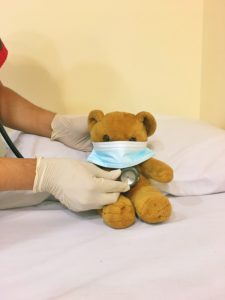ASHEVILLE, NC – November 7, 2022 – This is the time of year, during the colder fall, winter and spring months, for the spread of seasonal viral respiratory diseases like the flu. These illnesses are contagious and spread in the air. The respiratory syncytial virus (RSV) has been around for years, although it hasn’t been as common as the flu. Babies and children 2 years old and younger can be affected. The virus can cause the lungs and the airways to become inflamed and for pneumonia to develop in severe cases. There is a higher rate of hospitalization than for flu or even COVID-19. Older persons and those that have weakened immune systems can also become severely ill.
RSV is a global disease that is surging earlier this year in much of the United States. In many states (like Michigan), the health care system is now under severe stress due to the large number of hospital admissions, ICU admissions and staff shortages. Some of the most common symptoms of RSV are like the common cold with fever and runny nose. Worsening of the disease can be associated with loss of appetite, coughing, sneezing and wheezing. Those with trouble breathing require immediate hospital care. Sometimes, this disease can be fatal.
Wearing face masks and frequent hand-sanitation have helped to reduce the spread of COVID-19 and other respiratory illnesses over the past few years. As a result, many young children have not been exposed to RSV and, therefore, have no immunity to it. Many people have stopped using these precautions due to the lessening of the COVID-19 problem, contributing to the early spread of respiratory illnesses like RSV. The Mission Hospital Pediatric Emergency Department reports that the current volume of cases is already equal to the usual winter surge. Data from the North Carolina Department of Health and Human Services Dashboard have reported more than a 1800% jump in Type A influenza cases in the past month. However, there is limited RSV-specific data on the N.C. dashboard.
The risk of acquiring severe viral respiratory diseases can be reduced through wearing a face mask when indoors, frequent hand washing and staying away from crowded indoor public spaces. The FDA has not approved any vaccine for RSV. However, Pfizer is planning to submit the results of their recently successful phase three trial by the end of the year.
Listen to the full report below:
Contact: Dr. Dick Needleman, Health reporter, 103.3 AshevilleFM, healthyasheville@ashevillefm.org
